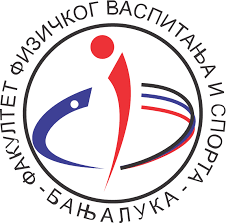The Relationship Between Motor Abilities and the Performance of the Osoto Gari in Police Students
Original article
Submitted: 28/11/2024
Accepted: 08/04/2025
Published: 12/06/2025
UDK: 572.087:351.74-057.36
Authors
Correspondence email: darko.paspalj@fbn.unibl.org
Abstract
The aim of the study was to determine the association between motor abilities and the performance of the Osoto Gari (OSOTOG) from the special physical education (SPE) program, as a narrower part of the Physical Education field. The sample consisted of 84 male first-year students from the Faculty of Security Sciences in Banja Luka. The variable sample consisted of sixteen tests for assessing motor skills, which served as independent variables, and the dependent variable, the Osoto Gari, represented the average grades of performing the throwing technique with a backward standing leg from the SFE program. This technique differs from the classic Osoto Gari by its training methodology and level of application in defense or attack situations. Based on the results of the regression analysis, it can be concluded that motor skills are significant for the effectiveness of the throwing technique with a backward standing leg, with 46.4% of the total variability of the dependent variable OSOTOG being determined by the independent variables assessing motor skills. The statistically significant individual contributions to explaining the criterion variable OSOTOG were made by the following variables: hand tapping, side steps, twisting, side lying, forward bend on a bench, and standing long jump, which suggests that these variables are predictive for performing the throwing technique with a backward standing leg from the SPE program. The obtained results could be used to develop certain motor skills to improve the quality of performing the throwing technique with a backward standing leg.
Keywords: Tactical athletes, Self-defense, Use of force, Throwing technique, Police



